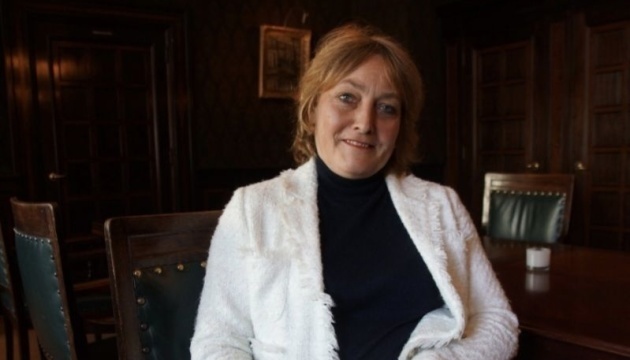
Frozen assets of the Russian Central Bank are difficult to confiscate because, legally, they still belong to Russia. To officially transfer them to another party requires appropriate court rulings and coordination between countries.
Dutch lawyer and expert on sanctions against Russia, Heleen over de Linden, stated this in an exclusive comment to Ukrinform’s correspondent in The Hague.
She explained that it is difficult to confiscate frozen Russian assets because they still belong to the Russian Central Bank, and without proper coordination, the property cannot simply be taken.
She noted that this was the first problem and that there must be coordination to transfer ownership to another party, but so far, no court rulings exist, adding that discussions about mechanisms for using Russia’s frozen assets had begun three years ago.
The lawyer also emphasized that even with political support, the organizational and legal aspects are complex, and in practice, transferring the funds is difficult because it goes beyond the democratic system. She said that in a democratic country, money cannot simply be taken from someone without an appropriate decision.
However, due to Ukraine’s persistent requests and international willingness to support the country, this transfer will eventually be achieved, and the Russian assets will be used for Ukraine’s benefit.
Linden stated that there may be special court hearings on the matter, as it is entirely appropriate to use Russian money for Ukraine since the aggressor must pay for the damage caused, which she considered fair. However, so far, no court has ruled that Russia must pay.
According to Linden, European institutions previously restrained this process. However, after long discussions and numerous appeals, there is now a high probability that, with guarantees from the European Central Bank and EU states, the funds could be transferred to Ukraine – and possibly quite quickly.
As Ukrinform reported, the EU is working on an initiative to unlock EUR 185 billion in frozen assets of the Russian Central Bank. The initiative for a “reparations loan,” announced last month by European Commission President Ursula von der Leyen, is being discussed by EU leaders at the summit on October 23-24.
Photo: Iryna Drabok / Ukrinform
Ukrinform photos can be purchased here.


